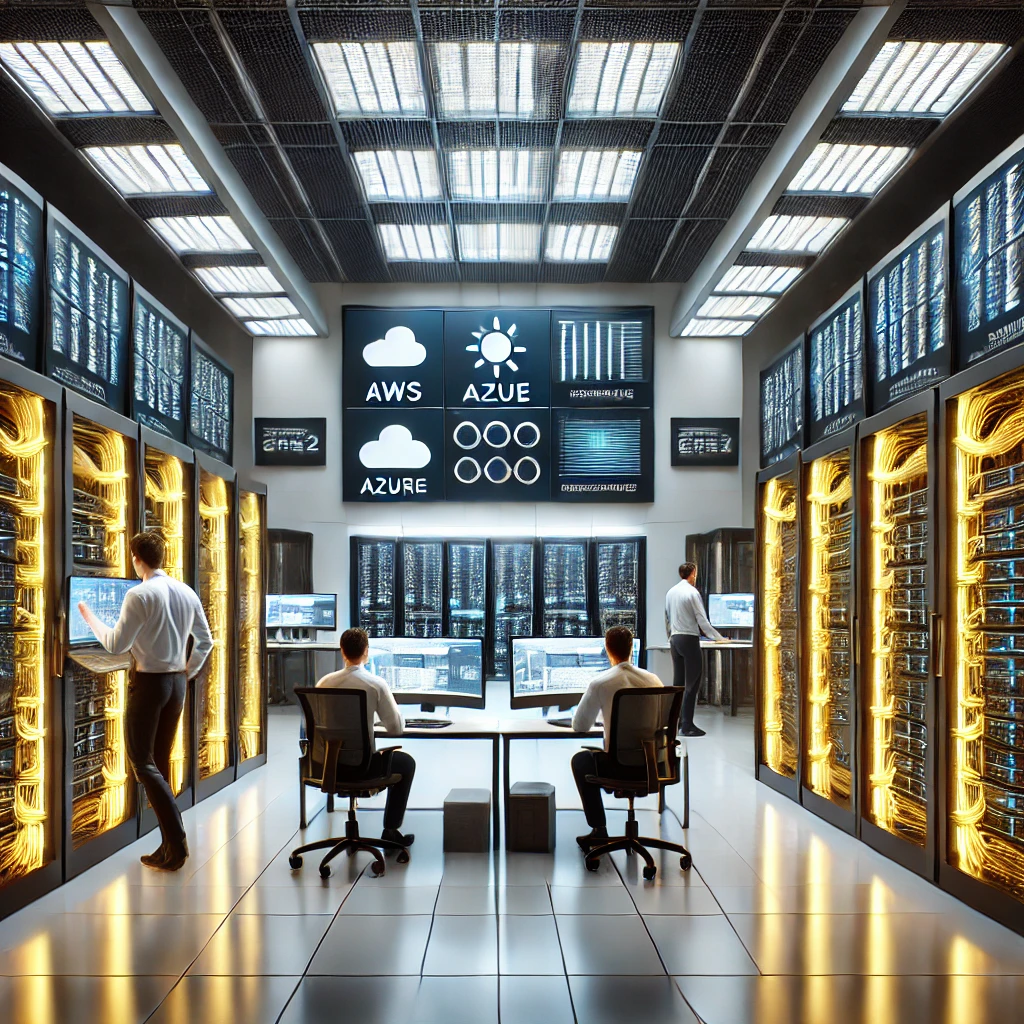If you’ve worked in tech—or even just read about it—you’ve probably heard the phrase cloud computing more times than you can count. It’s no longer just a buzzword. It’s the backbone of modern digital infrastructure.
hosting websites to running AI workloads, cloud platforms are where the magic happens. But to really harness the power of the cloud, you need the right tools.
So whether you’re a developer, DevOps engineer, startup founder, or just someone trying to keep up with the digital world, here’s a friendly breakdown of the top cloud computing tools in 2025 you should absolutely know about.
Why Cloud Computing Tools Matter
Before diving into the list, let’s get something clear: cloud computing isn’t just about “storing stuff online.” It’s an entire ecosystem of services that power your favorite apps, websites, and businesses.
Cloud tools help you:
- Deploy apps quickly
- Automate infrastructure
- Monitor performance
- Scale with demand
- Save money
- Stay secure
The right cloud computing tools can make or break your success in today’s software-driven world.
1. AWS (Amazon Web Services)
AWS is the most widely used cloud platform on the planet—and for good reason. It offers everything from basic storage (S3) to cutting-edge AI and machine learning services.
Why it stands out:
- Over 200 services across compute, storage, databases, analytics, and security
- Pay-as-you-go pricing
- Massive global infrastructure
Whether you’re spinning up a virtual server (EC2), deploying a containerized app (ECS/EKS), or hosting a static website (S3 + CloudFront), AWS has you covered.
2. Microsoft Azure
A close rival to AWS, Azure is Microsoft’s cloud platform and is especially popular among enterprises already using Windows, Office, or .NET.
Why people love it:
- Seamless integration with Microsoft products
- Great for hybrid cloud setups
- Enterprise-grade security
Azure is ideal if you’re working with things like Active Directory, SQL Server, or Microsoft 365 and want a tightly integrated cloud computing environment.
3. Google Cloud Platform (GCP)
Google Cloud shines when it comes to data-heavy workloads, machine learning, and containerized applications.
Top reasons to use GCP:
- Industry-leading data analytics with BigQuery
- World-class AI/ML tools (TensorFlow, Vertex AI)
- Kubernetes (Google invented it!)
GCP also has a developer-friendly interface and strong open-source support. It’s a great choice if you’re building next-gen apps or want to leverage powerful cloud automation tools.
4. Terraform (by HashiCorp)
If you’re managing cloud infrastructure, Terraform is a name you need to know. It’s an open-source Infrastructure as Code (IaC) tool that lets you define your infrastructure with simple configuration files.
Why it’s a DevOps favorite:
- Works with all major cloud providers
- Automates provisioning and scaling
- Version-controlled, repeatable deployments
Instead of manually setting up resources in AWS or Azure, you write a few lines of code and let Terraform do the rest.
5. Kubernetes
You can’t talk about cloud deployment tools without mentioning Kubernetes. Originally developed by Google, Kubernetes (or K8s) is now the gold standard for container orchestration.
Why it’s a game-changer
- Manages containers at scale
- Handles load balancing, scaling, and self-healing
- Works seamlessly with cloud services
If you’re deploying microservices, containers, or modern web apps, Kubernetes helps you stay organized, efficient, and ready for growth.
6. Docker
While Kubernetes orchestrates containers, Docker helps you create them. Docker lets developers package applications and their dependencies into a single, portable container.
Why developers love it:
- “It works on my machine” is no longer an issue
- Faster builds and consistent environments
- Easy integration into CI/CD pipelines
Docker is essential for building modern apps that need to be deployed on any cloud platform without headaches.
7. Ansible
Ansible is a powerful automation tool used for configuration management and software provisioning. It’s simple, agentless, and uses YAML, making it easy to learn and powerful to use.
Great for:
- Automating cloud infrastructure tasks
- Enforcing consistent configurations across environments
- Integrating into deployment workflows
You can automate everything from setting up web servers to managing firewalls—all with a few clean lines of code.
8. CloudWatch (AWS) / Azure Monitor / Google Cloud Operations
Monitoring is key in the cloud. You need to know when something breaks—ideally before your users do.
Popular cloud monitoring tools include:
AWS CloudWatch
Azure Monitor
Google Cloud Operations (formerly Stackdriver)
They help you:
Track application health
Get real-time alerts
Visualize logs and metrics
Optimize performance
Monitoring tools are the silent heroes of cloud infrastructure
9. Jenkins
Jenkins is an open-source automation server that supports building, testing, and deploying code automatically.
Why it rocks:
- Supports hundreds of plugins
- Easily connects with cloud services, Docker, and Kubernetes
- Powers robust CI/CD pipelines
If you’re serious about DevOps or continuous delivery, Jenkins is a must-have in your cloud deployment toolkit.
10. GitHub Actions
If you’re already using GitHub, GitHub Actions is a built-in automation tool that lets you define workflows for building and deploying code—right from your repo.
Why it’s gaining traction:
- Native integration with GitHub repos
- Easy YAML-based workflows
- Great for smaller teams or simple pipelines
GitHub Actions is particularly useful for automating testing, deployment, and notifications in cloud-native environments.
Pick the Tools That Work for You
The cloud is vast—and constantly evolving. While there’s no one-size-fits-all stack, understanding the top cloud computing tools helps you make informed choices.
Must-Know Cloud Tools
- ✅ AWS / Azure / GCP – Cloud platforms
- ✅ Terraform / Ansible – Infrastructure automation
- ✅ Docker / Kubernetes – Containers & orchestration
- ✅ Jenkins / GitHub Actions – CI/CD pipelines
- ✅ CloudWatch / Azure Monitor – Monitoring and performance



https://cr-v.su/forums/index.php?autocom=gallery&req=si&img=4030
Very good
Awesome
Awesome
Awesome
Awesome
Pretty! This has been a really wonderful post. Thank you for supplying these details.
Very good https://shorturl.fm/bODKa
Психологическая помощь и онлайн-консультации проверенных психологов и психотерапевтов Психологическая помощь
и онлайн-консультации проверенных психологов и психотерапевтов 059
umhvrytssiyizxrrytyzoklkinhlxt